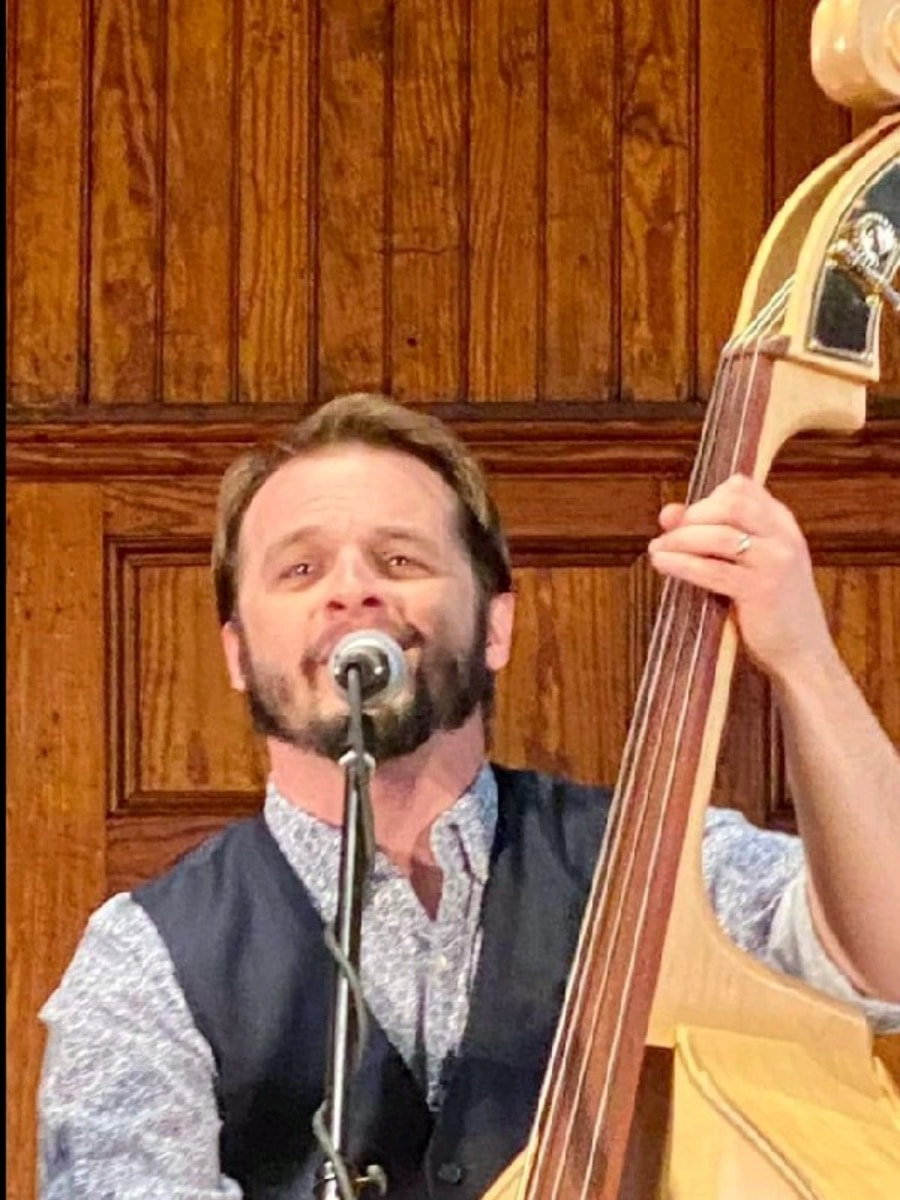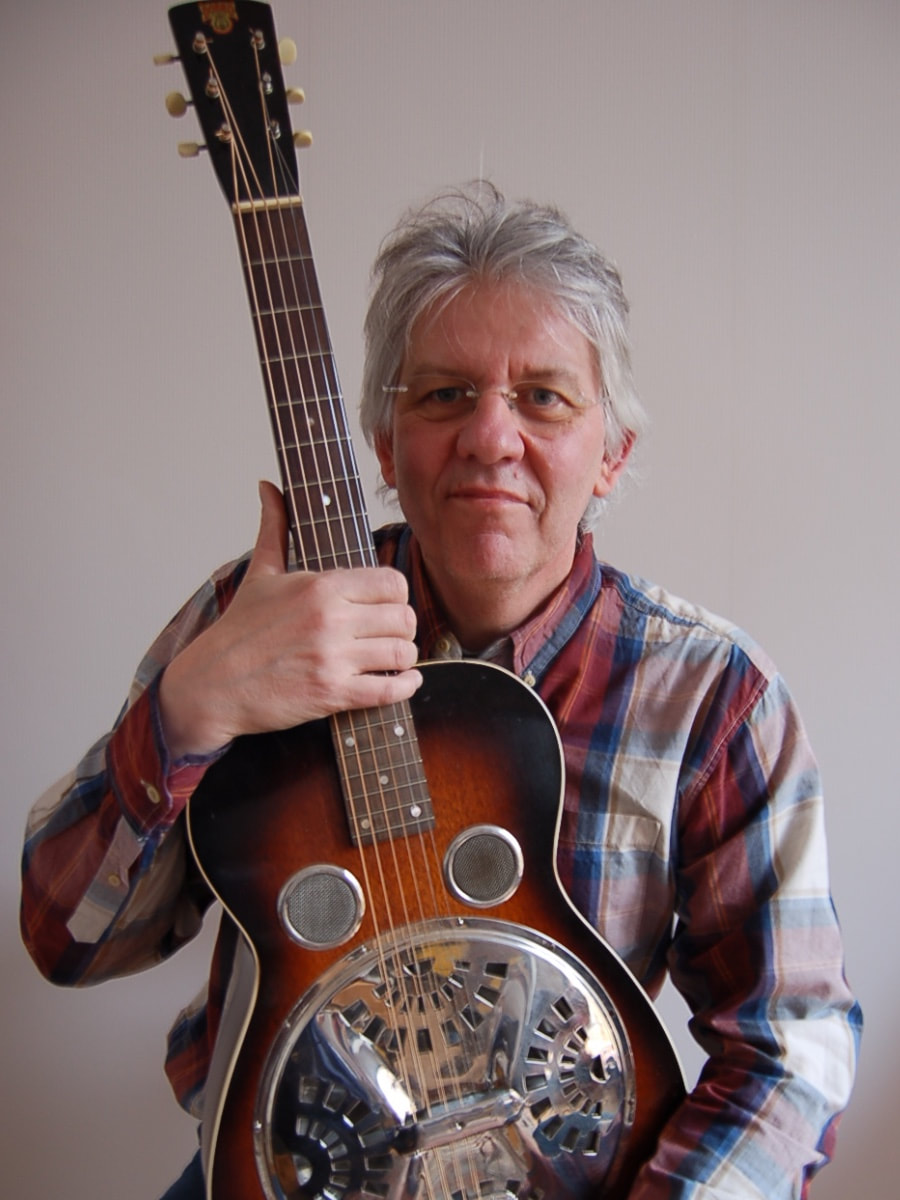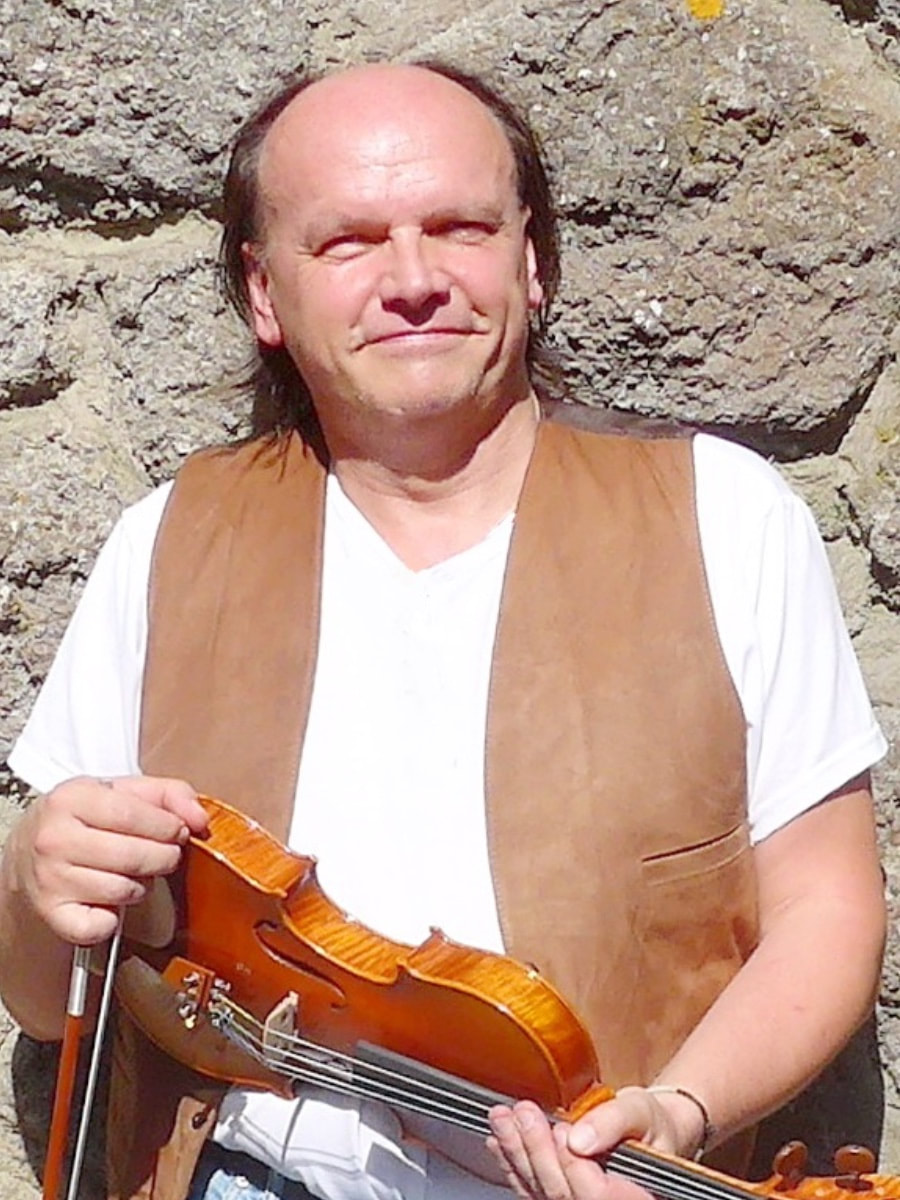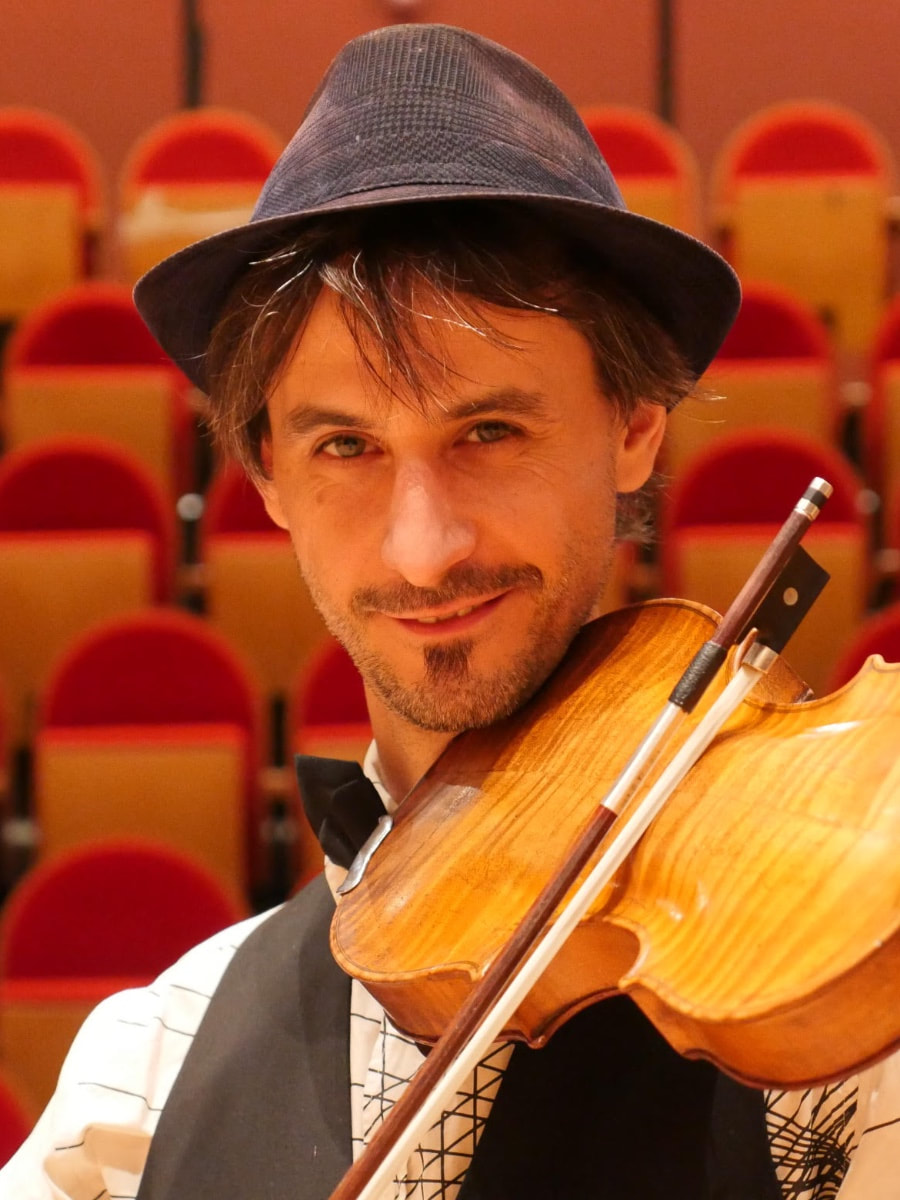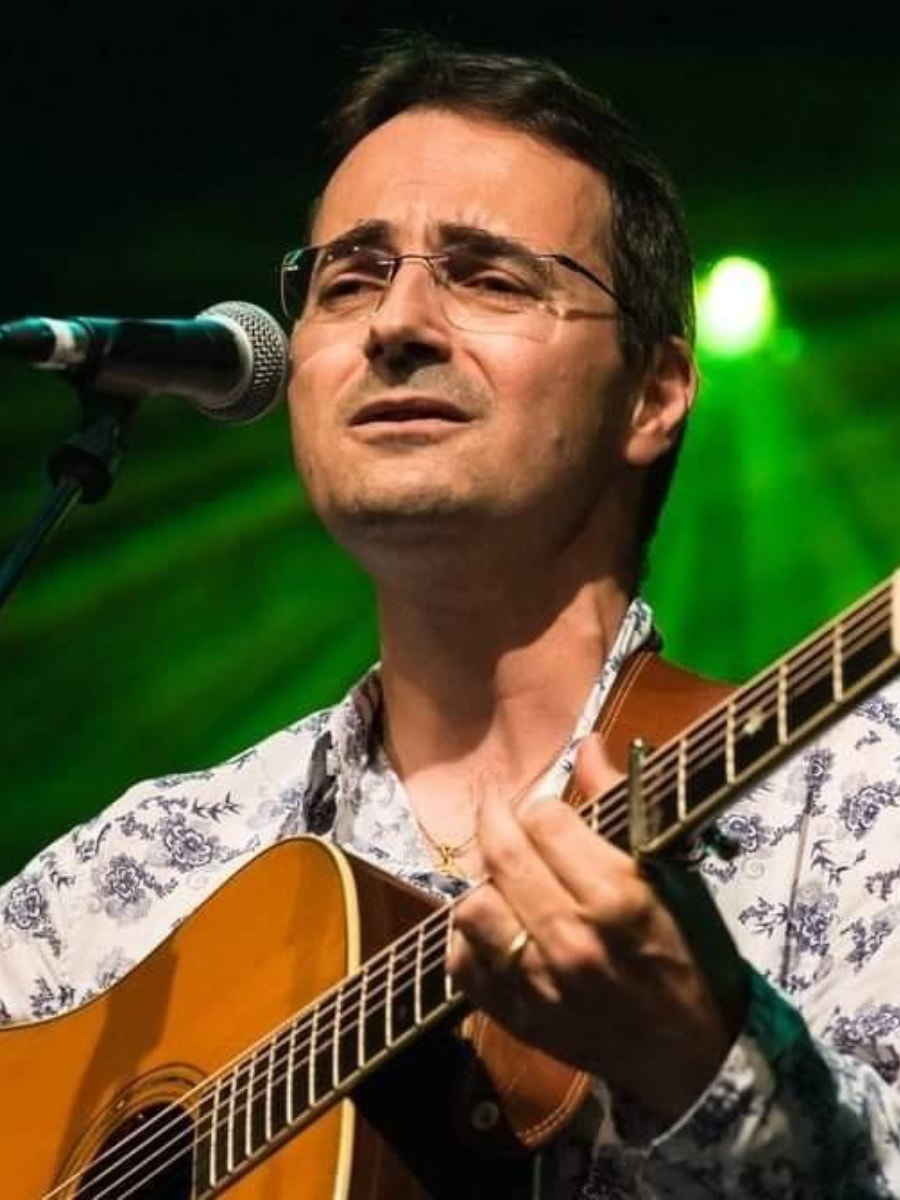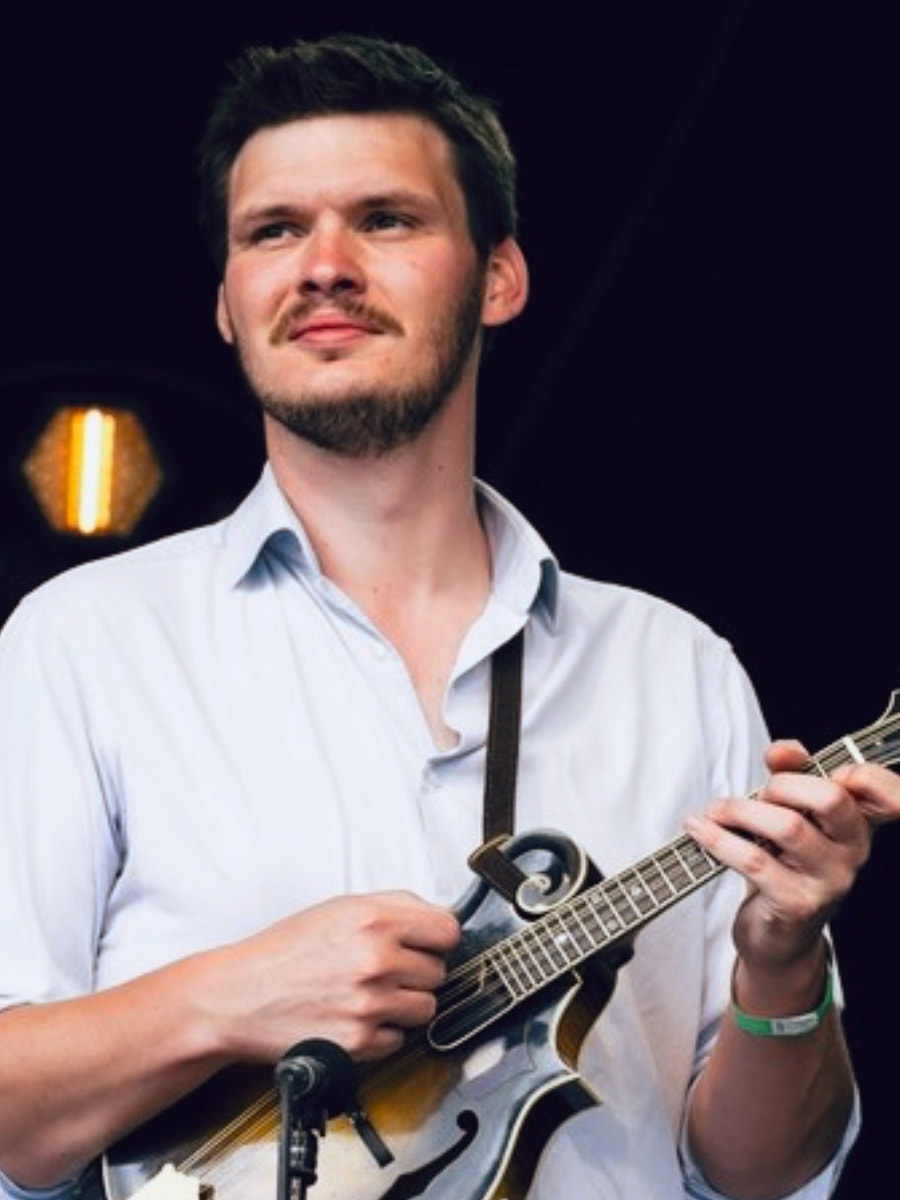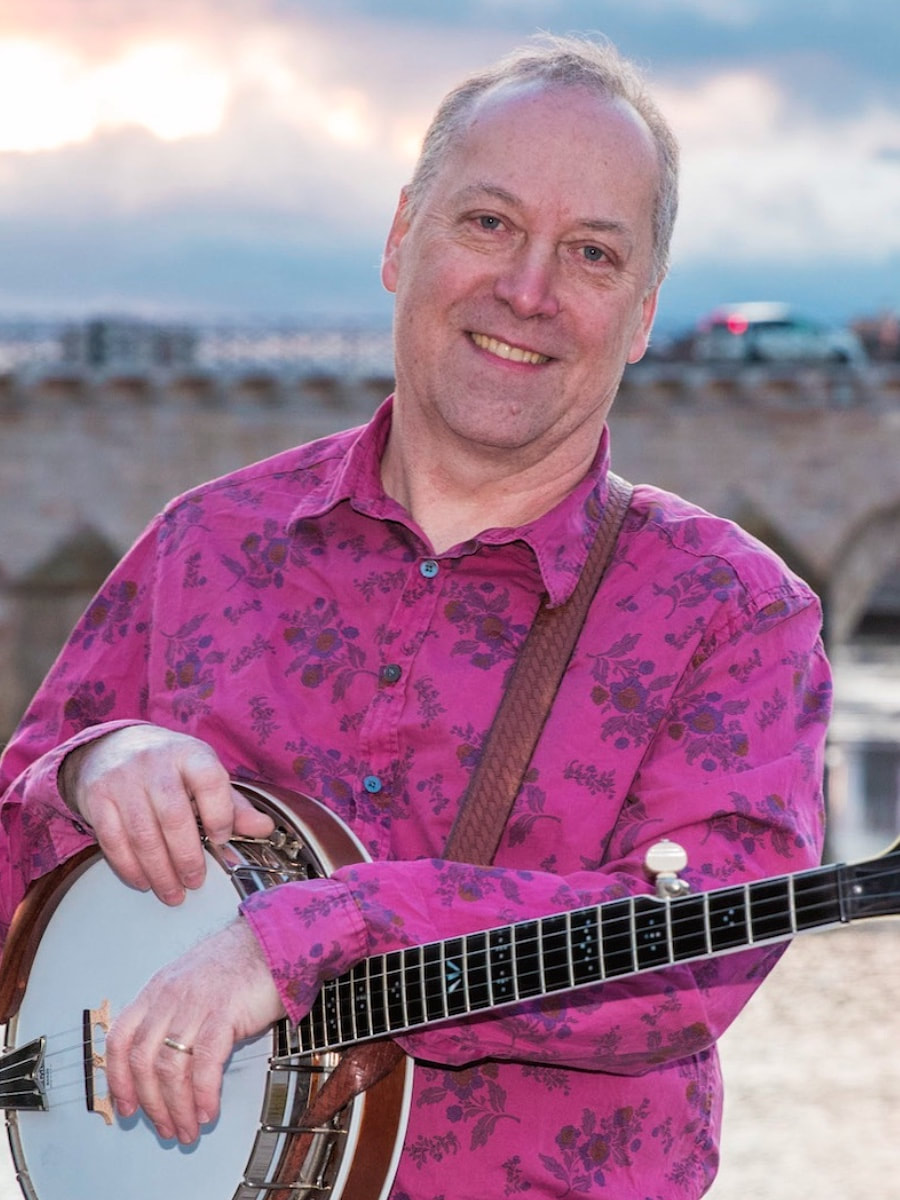-
PRACTICAL
-
PROGRAMME
-
2024 INSTRUCTORS
-
NEED TO KNOW
-
SIGN UP
<
>
registrations for 2024 open april 1
A 3-day teaching camp from Tuesday 30 July to Thursday 1 August, 2024 with possibility of accommodation
The goal is to help you, whatever your level, improvise and take part in a Bluegrass jam with autonomy and confidence: "learn to play without being tied to tablatures!"
Workshop "band labs", formed during the workshop and coached by one of the tutors, kick off the festival on the main stage on Thursday.
The camp takes place at Lycée Sainte Famille, La Roche sur Foron (74800)
Limited to 120 participants with 100 available beds on site
Morning : Instrumental Classes & Vocal Harmonies
Afternoons : Wernick Method coached Jams - Band Labs
The school is open from 3 pm on Monday July 31 and there is a welcome drinks and dinner on Monday evening, hosted by the festival organisation.
The goal is to help you, whatever your level, improvise and take part in a Bluegrass jam with autonomy and confidence: "learn to play without being tied to tablatures!"
Workshop "band labs", formed during the workshop and coached by one of the tutors, kick off the festival on the main stage on Thursday.
The camp takes place at Lycée Sainte Famille, La Roche sur Foron (74800)
Limited to 120 participants with 100 available beds on site
Morning : Instrumental Classes & Vocal Harmonies
Afternoons : Wernick Method coached Jams - Band Labs
The school is open from 3 pm on Monday July 31 and there is a welcome drinks and dinner on Monday evening, hosted by the festival organisation.
|
x
Is this camp for me?
This camp is for you, if ...
What will I learn?
The workshop is organized around 4 themes:
1- Instrumental classes : (3 full mornings) : bluegrass playing techniques on your favorite instrument, rhythmics, phrasing, licks, solos... 2- Workshops : bluegrass vocal harmonies, advanced instrumental techniques, thematic modules (composition, clear cues for improvisation...) 3- Wernick Method jam teaching: in small groups divided by level, each group being marked by one of the teachers. The best way to learn! 4- Band Labs: groups formed during the workshop and coached by a teacher with the aim of playing one or two pieces on the festival's main stage on Thursday night. More than 20 hours of instrumental or vocal lessons with the teachers of your choice, covering all the essential aspects of bluegrass music, not to mention informal meetings and exchanges! Where will I stay?
The workshop is fully residential. All classes and meals take place in Lycée Sainte Famille (High School) of ESCR, the La Roche Catholic School Association. Students sleep in the residential part of the school (2-5 to a room with shared bathrooms) or at the ENILV school next door (the National Agriculutral College for the Milk and Meat Industry). Both schools are partners of the festival. ESCR also runs Sainte Marie Junior High School, which hosts the festival itself. Students may also choose to sleep elsewhere and take only meals in the school dining room. For more information about where the school is or where to stay, see the maps of La Roche and where to stay. wifi is available on the ground floor of the main Sainte Famille building When should I arrive?
The school will be open from 3pm on Monday afternoon to register and move into your rooms. There will be a reception at 6.30 with food and drinks hosted by the festival organising committee and the teaching team. Can I stay for the festival?
Students at the camp may keep their room during the festival if they wish. The price will be the regular rate and you must inform the organisation of your intention to stay when you sign up for the camp. The organization has decided to grant trainees a special rate on the 4-day pass for entry to the festival. |
|
Vertical Divider
The camp opens on Monday evening with a welcome drink and meal hosted by the festival organising committee with introductions by Festival Chair Christopher Howard-Williams and the Camp leader Gilles Rézard.
TIMETABLE
Morning
9:15 - 11:15 am
Afternoon
2:30 - 3:30 pm
9:15 - 11:15 am
- Instrumental classes: of the student's choice and may change during the workshop.
- Bluegrass vocal harmonies / On demand workshops
Afternoon
2:30 - 3:30 pm
- Wernick Method jam teaching: all levels jam groups coached by the teachers
- Band labs: rehearsals supervised by the teachers for the students concert to open the festival.
The Wernick Method
The Wernick Method will be part of the camp modules: students will have access to the bluegrass jam materials carefully prepared by Pete Wernick, to learn in the best conditions
ABOUT THE WORKSHOPS
This camp is not a discovery workshop: if you have never played an instrument before, you will need to get some practice beforehand. See the "Need To Know" tab.
It is intended for :
People who have their own instrument and have already started, even recently, in the bluegrass style or with at least some notions such as
- Quick tuning
- Accompanying in rhythm, at slow or medium tempo (60-70)
- Being able to change chords comfortably between G, C, D and A.
For experienced musicians who wish to take advantage of these three days and the festival to make significant progress, to take new references, to learn new notions, new pieces, to find new ways to improvise, arrange, sing...
In case of any doubt, please feel free to contact us.
It is intended for :
People who have their own instrument and have already started, even recently, in the bluegrass style or with at least some notions such as
- Quick tuning
- Accompanying in rhythm, at slow or medium tempo (60-70)
- Being able to change chords comfortably between G, C, D and A.
For experienced musicians who wish to take advantage of these three days and the festival to make significant progress, to take new references, to learn new notions, new pieces, to find new ways to improvise, arrange, sing...
In case of any doubt, please feel free to contact us.
American Tutors
From the Rick Faris Band
Rick Faris • Guitar
|
Intermediate & advanced guitar class
We will run through rhythm roles such as vocal back up, alternate chords, rhythm syncopation, and dynamics. We also cover guitar lick building and solo planning to make you confident on stage and in jam sessions. We will also cover the process of building up speed. |
Chris Luquette • Mandoline
|
Advanced mandolin class
A hands on clinic touching on traditional bluegrass songs, fiddle tunes, swing standards and country classics. An in-depth study of rhythm fundamentals, chords, scales, arpeggios, and use of fingering patterns to mentally map your fretboard. Students will use these tools to build musical solos, learn and play faster, improve tone and enhance the tunes they already know. Geared to the intermediate player wanting to move forward with tools and new ways to approach the mandolin. Bring a recording device and open mind. |
Eli Gilbert • Banjo
|
Advanced banjo class
In this course we'll focus on expanding our knowledge and vocabulary on the banjo, using examples from classic and modern recordings. Topics will include:
|
Jim Bob Faris • Double bass
French Tutors
Jimmy Josse • Rhythm Guitar
|
Basic & intermediate
Program: This guitar course, primarily aimed at Bluegrass novices, will focus on establishing the technical foundations necessary for playing this genre of music. Together, we will work through various playing styles such as strumming, alternating bass, passing notes, the G-run, cross-picking, and flat-picking, using tailored exercises to enable you to accompany and also play themes and solos. We will put these concepts into practice with carefully chosen repertoire! And don't forget your picks and capos! |
Thierry Loyer • Dobro
Thierry Lecocq • Fiddle
Raphaël Maillet • Fiddle
|
All levels
Program: We will break from the standard rule that "I don't know the melody, I don't have the score, so I cannot play with you" and move to "I don't know the melody but I do understand some things and so I can play with you!" This playful idea that accepts every level becomes a teaching method and enables powerful musical interaction. |
Patrick Peillon • Guitare
|
Intermediate & advanced
Program: Prerequisite: know how to use a flatpick & play bluegrass rhythm guitar. This course will give you all the basics to learn how to improvise and build your own solos. Work on arpeggios, crosspickings and scales and how to apply them to create bluegrass improvisations that respect the melodies. Lots of practical application. Understanding and improvising on a fiddle tune |
Dorian Ricaux • Mandoline
|
All levels
Program:
|
WHERE THE MUSIC CAME FROM
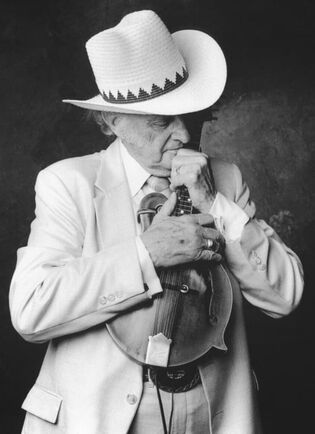
1925 - 1945 : the slow maturing
Bill Monroe, mandolinist of genius, is inspired by the most popular styles of the time with the idea to invent a new style.
The popular styles from which he was strongly inspired are :
- The gospel (and the religious music): it comes from a family of notables very practising
- The fiddle tunes : instrumentals imported by the Irish fiddlers, direct influence of his uncle : "Uncle Pen
- The blues : his best friend, Arnold Schulz, was an appreciated bluesman with whom he animated many balls,
- Ballads : songs with stories of British tradition, peddled in particular by the Carter Family,
- Western swing: huge commercial success, "American-style" shows, with superstars like Bob Wills. In 1938 was born from these various influences a group named by Bill Monroe: "The Blue Grass Boys".
1945: success at last!
After many evolutions, the success occurs finally thanks to the arrival in the group of a young guitarist with the perfect voice for the style: Lester Flatt, followed by a banjoist still unknown: Earl Scruggs.
This was the missing ingredient and the spark that set the world on fire!
After a historic performance on Nashville's main stage in 1946 at the Grand Ole Opry (now the Ryman), a veritable musical revolution took place.
During a few years, money flows and the bluegrass style starts to influence groups that will become legendary:
Jim & Jesse (1945), Stanley Brothers (1946), Flatt & Scruggs (1948), Jimmy Martin (1949), Reno & Smiley (1950) and Osborne Brothers (1953).
Bill Monroe, mandolinist of genius, is inspired by the most popular styles of the time with the idea to invent a new style.
The popular styles from which he was strongly inspired are :
- The gospel (and the religious music): it comes from a family of notables very practising
- The fiddle tunes : instrumentals imported by the Irish fiddlers, direct influence of his uncle : "Uncle Pen
- The blues : his best friend, Arnold Schulz, was an appreciated bluesman with whom he animated many balls,
- Ballads : songs with stories of British tradition, peddled in particular by the Carter Family,
- Western swing: huge commercial success, "American-style" shows, with superstars like Bob Wills. In 1938 was born from these various influences a group named by Bill Monroe: "The Blue Grass Boys".
1945: success at last!
After many evolutions, the success occurs finally thanks to the arrival in the group of a young guitarist with the perfect voice for the style: Lester Flatt, followed by a banjoist still unknown: Earl Scruggs.
This was the missing ingredient and the spark that set the world on fire!
After a historic performance on Nashville's main stage in 1946 at the Grand Ole Opry (now the Ryman), a veritable musical revolution took place.
During a few years, money flows and the bluegrass style starts to influence groups that will become legendary:
Jim & Jesse (1945), Stanley Brothers (1946), Flatt & Scruggs (1948), Jimmy Martin (1949), Reno & Smiley (1950) and Osborne Brothers (1953).
WHAT TO LISTEN TO
The main bands, in chronological order:
1945 - 1960 (traditional bands) : Bluegrass Boys, Jim & Jesse, Stanley Brothers, Flatt & Scruggs, Jimmy Martin, Reno & Smiley, Osborne Brothers, Doc Watson, Country Gentlemen, Del Mc Coury, Kentucky Colonels, The Dillards.
1960 - 1980 (the innovatives): Seldom Scene, Bluegrass Cardinals, JD Crowe and new South, Doyle Lawson and Quicksilver, Bluegrass Album Band, Ricky Skaggs and Kentucky Thunder, Bluegrass Alliance, Country Cooking, Newgrass Revival, Counry Gazette, Muleskinner, David Grisman Quintet, Hot Rize, Tony Rice Unit, Skyline.
1980 - today (modern bluegrass): Alison Krauss and Union Station, Nickel Creek, Alison Brown Quartet, Crooked Still, Punch Brothers, Billy Strings...
The jam favorites:
The bluegrass repertoire fortunately contains many 3-chord songs, with the same grid and sometimes the same melody between verse and chorus.
This is the place to start, especially if they are jam favorites with nice melodies!
Here is a list of some of the 20 most popular 3-chord songs:
1945 - 1960 (traditional bands) : Bluegrass Boys, Jim & Jesse, Stanley Brothers, Flatt & Scruggs, Jimmy Martin, Reno & Smiley, Osborne Brothers, Doc Watson, Country Gentlemen, Del Mc Coury, Kentucky Colonels, The Dillards.
1960 - 1980 (the innovatives): Seldom Scene, Bluegrass Cardinals, JD Crowe and new South, Doyle Lawson and Quicksilver, Bluegrass Album Band, Ricky Skaggs and Kentucky Thunder, Bluegrass Alliance, Country Cooking, Newgrass Revival, Counry Gazette, Muleskinner, David Grisman Quintet, Hot Rize, Tony Rice Unit, Skyline.
1980 - today (modern bluegrass): Alison Krauss and Union Station, Nickel Creek, Alison Brown Quartet, Crooked Still, Punch Brothers, Billy Strings...
The jam favorites:
The bluegrass repertoire fortunately contains many 3-chord songs, with the same grid and sometimes the same melody between verse and chorus.
This is the place to start, especially if they are jam favorites with nice melodies!
Here is a list of some of the 20 most popular 3-chord songs:
- Banks of the Ohio
- Blue Ridge Cabin Home
- Bury Me Beneath The Willow
- Handsome Molly (2 accords)
- I am a Pilgrim
- I'll Fly Away
- I'm Coming Back But I Don't Know When
- Little Darling Pal of Mine
- Long Gone
- Long Journey Home
- Man of Constant Sorrow
- My Home Across the Blue Ridge Mountains (2 accords)
- New River Train
- Nine Pound hammer
- On and On
- Roll in my Sweet Baby's Arms
- Take This Hammer
- Will The Circle Be Unbroken
- You Are My Sunshine
- Your Love is Like a Flower
WHAT TO LEARN TO PLAY
Bluegrass music is essentially learned by ear from our favorite bands and musicians, and then with the pleasure of playing with friends.
For that, this music has the particularity to be accessible instrumentally or vocally without any previous musical notion, even if at the same time and on the same pieces our favorite musicians reach summits of virtuosity!
No need for theory, just listen, memorize a melody, and jump in, trying to follow the chords.
Three chords will be enought to start: G, C and D.
So start by practicing changing chords comfortably, at a slow tempo (or even very slow...), and just in rhythm: poum-tchac or with long notes on the fiddle.
You still feel a little bit lost and want to know where to start?
There are some possibilities to start:
For that, this music has the particularity to be accessible instrumentally or vocally without any previous musical notion, even if at the same time and on the same pieces our favorite musicians reach summits of virtuosity!
No need for theory, just listen, memorize a melody, and jump in, trying to follow the chords.
Three chords will be enought to start: G, C and D.
So start by practicing changing chords comfortably, at a slow tempo (or even very slow...), and just in rhythm: poum-tchac or with long notes on the fiddle.
You still feel a little bit lost and want to know where to start?
There are some possibilities to start:
- Either you prefer to start on your own like on YouTube: La Chaine Bluegrass
- You want to learn faster, please feel free to visit the Ecole Bluegrass website.
- You want to know about bluegrass in France: see the FBMA website
The 2024 fee remains unchanged from 2023: 190 €
Registrations are closed for 2024 camp
You can register on the waiting list
You will be contacted if places become available.
Registrations are closed for 2024 camp
You can register on the waiting list
You will be contacted if places become available.




